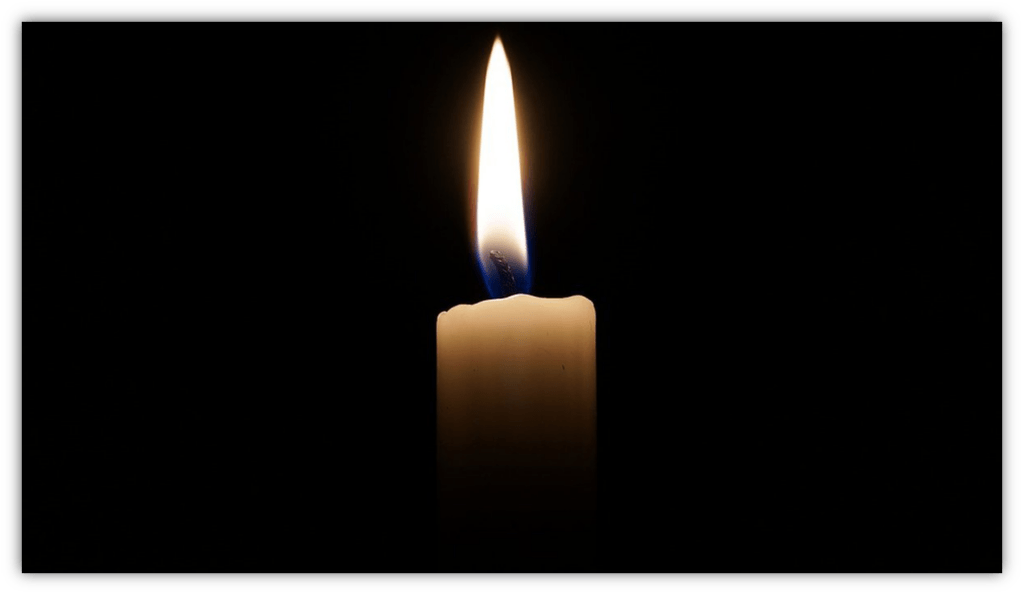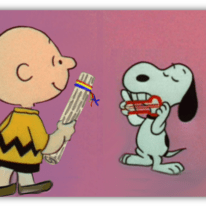
Author Tom Breihan has a book coming out soon, about twenty influential Number One Hits.
Music geeks like me have speculated in advance about what could appear there.
I’ve got a good, but odd choice for what to include:
I’ll Be Your Everything by Tommy Page.

I’ll wait for the applause to die down. Or your jaws to return from dropping to the floor.
Tom rated this a 4 out of 10 on Stereogum. TNOCS reviewers voted it an average score of 2.4. That ranks it among the all-time top 10 lowest scores for a number one surveyed as of this writing.
Interestingly, many reviewers who were alive when it was number one wrote that they couldn’t remember it:

IntheBoilerRoom:

Carstonio:

ShadowMorpheus:
The topper was thegue finding this top YouTube comment on the song’s video:
“Although I was 31 when this came out, I still listened to Top 40 radio and kept up with the Billboard Hot 100.
Youtube commenter
When I saw this title at #1, I was mystified because I had never heard it.
I only heard it when I downloaded it in the early 2000s. I’m still puzzled as to how it found itself at the top of the heap.”
Backing this perception up is radio historian Sean Ross. Surveying songs that finished in Billboard’s year-end top 100 from 1990-1994 but receive little to no airplay today, he ranked I’ll Be Your Everything Number Five overall.
Clearly, this is an inconsequential song.
But I think it’s worthy of discussion because it brings up these four interesting points about Number Ones:

1:
The Boy Band Influence
Love it or loathe it, from roughly the late 1980s to the early 2000s, the boy band trend was a dominant one for Number Ones.

I’ll Be Your Everything would make a fine representation of that sound because Page co-wrote it with two members of New Kids on the Block, Jordan Knight and Danny Wood, and Jordan co-produced with yet another “Kid,” Donnie Wahlberg.
By including I’ll Be Your Everything, you get to show the influence of the most successful boy band act at Number One. Yeah, none of the members were the equivalent of Barry Gibb in helping other Number One artists. But they did have an impact for a time.

2:
The Disappearing Act Syndrome
For most Number One artists, their careers on the Hot 100 fare pretty much the way Tommy Page’s trajectory went. He had only two other entries, neither of which cracked the top 25. That’s a common story for most acts. The Beatles, Elton John, Drake and a few dozen more are the exceptions, not the rule, for continuing Hot 100 success.
Sure, Tommy was scoring a chart topper in 1990 – along with Madonna, Janet Jackson and Mariah Carey. So were the likes of Alannah Myles (one other single beside Black Cat made the Hot 100), Stevie B (11 other entries beside Because I Love You, none of which entered the top 10.)
And, ahem, Vanilla Ice (after Ice Ice Baby, his take on Play That Funky Music made number 4, then two other entries failed to go above 50. And that was it). Tom supposedly is including Ice Ice Baby in his book. I’m very interested to see why and what he has to say that.

3:
The Contrast with a Similar Sounding Title
Thirteen years before I’ll Be Your Everything, another teen idol, Andy Gibb hit Number One with I Just Want to Be Your Everything. Comparing the two emphasizes why the latter largely works…
… while the former fails.
I Just Want to Be Your Everything has a vocal with good phrasing. Some lyrics are distinctive (“Darling, mine/I would wait forever for those lips of wine”). The production establishes a nice groove, and for the end chorus, there’s a dramatic key change. It’s no classic, but it’s enjoyable.
But I’ll Be Your Everything is just blah. Tommy’s voice lacks the character and nuances that Andy’s has. The lyrics are clichés about being your lover and best friend. There’s no dynamic change or big finale in the production.
It’s four minutes or so of starting. And going nowhere.
Sadly, both Tommy and Andy died before reaching 50. Which brings me to my last item:

4.
The Risk of Dying Early
The Hot 100 will be eligible for Social Security next year as it turns 65 years old.
Sadly, many artists who topped it never lived that long.
According to my estimates, among approximately 800 acts that have hit Number One on the Hot 100, around 10% involved an artist or at least one member who died before age 65.

That spans the first chart topper of the Hot 100, Ricky Nelson…

…through the recent death of Coolio.
That 80 or so deaths before retirement may not sound too big. But remember, most chart toppers this century have been under the age of 40. Heavy touring and recording schedules, combined with a lack of sleep and poor lifestyle choices including drugs and alcohol contribute to this trend.
Getting a number one hit can definitely pay a price in terms of longevity.
If you need one more reason to profile I’ll Be Your Everything, consider this:
After topping its Hot 100 chart:
Tommy Page went to work at Billboard.

He’s the only person to achieve that distinction to this point. And it kind of brings this discussion full circle.
So, what do you think? Am I right or wrong? Have any better candidates in mind?
If so, please share them below, preferably before Tom’s book comes out.
Let the author know that you appreciated their article with a “heart” upvote!





Looking at the TNO article for this song, I see that I did not comment on it. Perhaps I was away that day, and never caught up.
Which is a relief to learn, because not only do I have no recollection of ever hearing this song, but for a second I thought I had forgotten it just a year after reading an article about it! I definitely remember reading and commenting on “Nothing Compares 2 U” from the same time, but this one was a complete blank.
I do think there is value in documenting various bits of cultural detritus that we so often forget (and desperately want to do so). So I can agree that Tom including this one as a chapter in his book could have merit. But if he does so, Tom will really have to bring his literary skills to the task, because….let’s be real…Tommy hasn’t brought much at all!
I know I’ve heard “I’ll Be Your Everything” because I’ve read all of Tom’s columns to date and listened to all the #1s, and yet I still don’t remember it. I listened to it a few minutes and couldn’t repeat any part of it.
To be fair, I listened to Mary J. Blige’s “Family Affair” immediately afterwards, and that’s still playing in my head, but even as I was listening to “I’ll Be Your Everything,” my mind wandered. I had to remind myself that I needed to actively listen to it.
It hasn’t stood the test of even five minutes, let alone the test of time, so I’ll have to disagree and say it doesn’t deserve a place in the book. I get that a forgotten song can have a butterfly effect but, as you say, this song is inconsequential. It has some things in common with consequential songs, sure, but had no influence on any subsequent music.
For a song that didn’t leave a big impression, it generated a lot of comments back at the Mothership (over 450, if I remember correctly).
Most of them were of what mt58 would call Number One Zero Recognition Day (NOZRD).
But many of the comments were about what a nice person Page was and the
success he had in business end of the music industry and what a truly tragic ending to his story was.
As always, DF has an infallible memory.
I’ll chime in more on this article later, but I’m dictating while driving.
Which I know you all really hate when I do that.
See you virtually later.
I’m listening to “I’ll Be Your Everything” for the first time. In 1990, I still listened to the radio. Maybe I heard this song and confused it for Glenn Mederios’ follow-up single to “She Ain’t Worth It”, although it has more in common with Mederios’ UK domination era chart-topper “Nothing’s Gonna Change My Love for You”. Today, locally, he’s better known for being the president of Tagovailoa Mariota High School. It’s possible that the student body doesn’t know about his musical past.
I guess boy bands are better-remembered than solo artists who made the same type of music. If Page pulled a Roddy Frame, and gave himself a moniker like Turn the Page, “I’ll Be Your Everything” may have had a longer shelf life.
If this book is a best-seller, I’m sure there will be a sequel, and I’m sure around Volume 5 this song could make an appearance…
Right next to “Magic”.
#JUSTICEFORI’LLBEYOUREVERYTHING
… doesn’t really roll off the tongue, does it.
I always give brick and mortar a shot. I’ll be taking the rare selfie if Mr. Breihan’s book is for sale at Barnes and Noble.
This is my TNOCS-inspired activism:
#JUSTICEFORWALKAWAYRENEE.
This one didn’t cross the Atlantic so was a complete mystery to me. Its nothing like a significant song so by that standard it has no place in Tom’s book but I reckon there’s a place for exploring the lesser lights as well. It might not have lasting significance but it has its place in history and the charts are about what people are buying and listening to in the moment not because they think its a worthy song that will leave a permanent mark and be remembered in the future. By that standard I’d say there’s room for the likes of Tommy Page in order to give a deeper understanding of why some unlikely songs make it and why they don’t leave a legacy.
Of course there’s only limited room and there’s a lot of options to choose from so I appreciate its highly unlikely Tommy will make the cut.
This is a fun thought experiment but ultimately I would pass. Limiting the book to just 20 of the most influential songs seems impossibly difficult. It would be an insult to the other 19 to include this song among them.
Now, the four criteria is worth investigating! Each would be an interesting topic in the context of discussing one of the 20 songs where appropriate. For example – Boy Bands. Boy bands have been around forever, contributing to the popular sounds of the day. They have morphed and shapeshifted over time to fit the moment. The Temptations and their like are associated with Motown. The O’Jay’s and their like helped define the Sound of Philadelphia.
Where did the Boy Band concept come from and could we identify a potentially Top 20 Number One song associated with it? Yes, and I would nominate the Crew-Cuts “Sh-Boom” and make the case that Boy Bands evolved from the popular vocal quartet structure of the mid last century. If I remember correctly, the only other quartet to have a Number One before the Crew-Cuts was the Ames Brothers but their song was nowhere near as defining as “Sh-Boom”. “Sh-Boom” was unlike any other Number One that had come before it, which were mostly songs by early crooners and female solo artists. It was less orchestral, more bouncy (pop-ish if you will) and helped usher in the Doo Wop Sock Hop era of the 50’s. I was not alive then but it’s no stretch to assume the kids took note that this was a new sound (with no disrespect to the Rosemary Clooney’s and Eddie Fisher’s of the world) by an artist whose structure was four boys harmonizing on a really cool song. Some have claimed it was also the first Rock and Roll song to reach Number One. Bill Haley fans may differ, but it’s a legit argument.
Could “Sh-Boom” be one of the top 20? Should it be? I say yes. It was a first in many ways – a defining song for it’s genre, and introduced an artist format to the Number Ones that has been copied and evolved ever since.
I am sure if I thought it about longer the other three criteria would also make for interesting and better commentary on their associated Number One. Actually, this would probably make my head hurt, the limit being only 20 songs and all. Settling on “I’ll Be Your Everything” as a song that incorporates all four, while convenient, would short change the amount of valuable white space Tom could use to go really deep into the four criteria.
All of this assumes, of course, that Number Ones before the Hot 100 are fair game.
If I were going with a (somewhat) obscure No. 1 from that year, I’d pick one of the other ones you listed: Alannah Myles’ “Black Velvet.” A few reasons 1) the obvious Elvis conceit; 2) Alannah’s Canadian ’90s belter predating by a half-decade the similarly named Canadian rocker Alanis Morissette; 3) “Black Velvet” as a song a stylistic precursor for the kind of pop/rock emanating later in the decade from Meredith Brooks, Paula Cole and many Lilith Fair types.